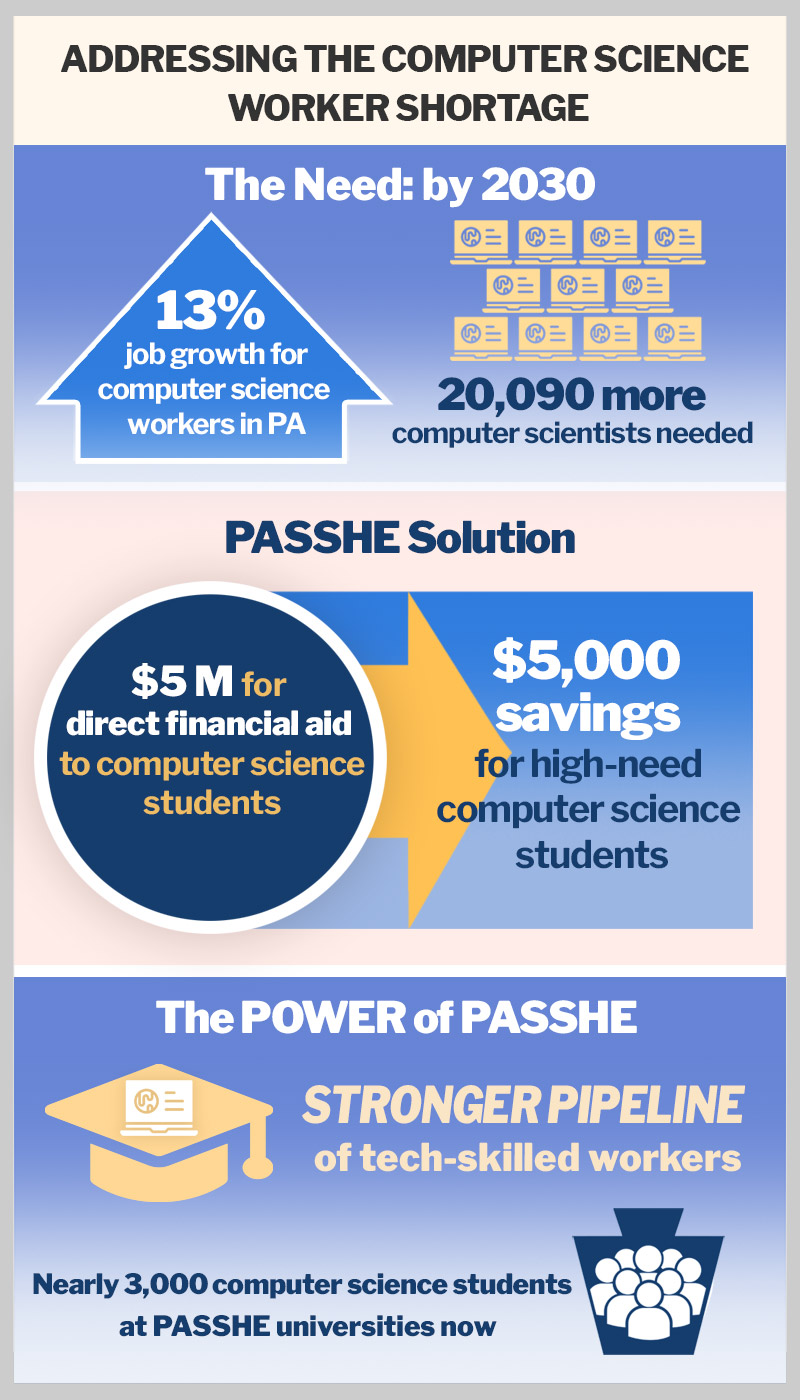May 16, 2023
PASSHE’S Plan to Address Pennsylvania’s Shortage of Tech Workers
Contact: Kevin Hensil, khensil@passhe.edu
Harrisburg, PA – The number of tech jobs in Pennsylvania is expected to increase 13% by 2030, requiring
more than 20,000 workers in a field where businesses are desperate for tech-skilled
employees.
 Jobs in tech are vital to many sectors of the economy from manufacturing to health
care and agriculture to education. Unless Pennsylvania strengthens the pipeline of
people trained for jobs in tech, many businesses and industries could be at a competitive
disadvantage against rivals in the global marketplace.
Jobs in tech are vital to many sectors of the economy from manufacturing to health
care and agriculture to education. Unless Pennsylvania strengthens the pipeline of
people trained for jobs in tech, many businesses and industries could be at a competitive
disadvantage against rivals in the global marketplace.PASSHE Solution
Pennsylvania’s State System of Higher Education (PASSHE) is seeking $112 million in state funding to address worker shortages by producing more graduates in six in-demand, high-growth
jobs, including computer science.
PASSHE universities would provide $5 million in direct financial aid to high-need
computer science students, saving them an average of $5,000 per year. Making a degree
more affordable would encourage additional people to pursue the education necessary
to become computer programmers, information security analysts, network administrators,
software developers and other tech careers vital to the economy.
The investment of the $112 million in combination with an inflationary increase of
$21 million would enable the Board of Governors to consider keeping basic in-state undergraduate tuition at $7,716 for a sixth year.
Across the System, computer science students have dynamic stories of gaining innovative skills that prepare them for rewarding tech careers.
The Power of PASSHE
The additional funding would enable PASSHE to increase enrollment of computer science
students by 18%, which would strengthen the pipeline from the classroom to the workforce.
Nearly 3,000 computer science students are at PASSHE universities this year, and the
majority of the graduates are still working in Pennsylvania a decade after earning
their degree.
Closing the shortage of tech-skilled workers is vital to broadband expansion and growth
in artificial intelligence, life sciences, biotech, financial and many other industries
in the state.
For more information about the State System’s plan to address labor shortages in the
six high-growth fields of education, nursing, computer science, engineering, social
services and business, or to see a budget request summary, visit the Advocacy Resource Center.